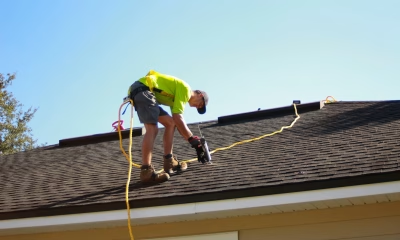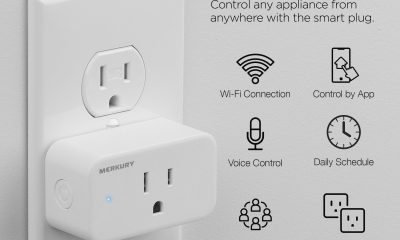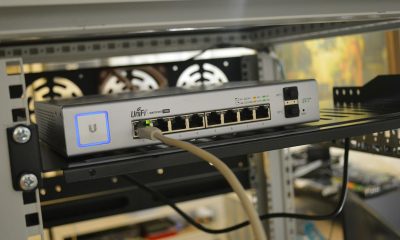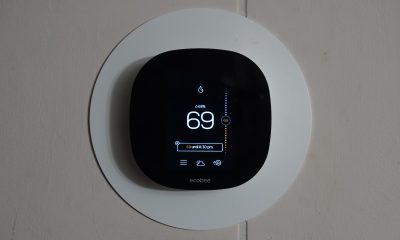Guides
The Complete Guide to Maintaining Your Home’s Hot Water System
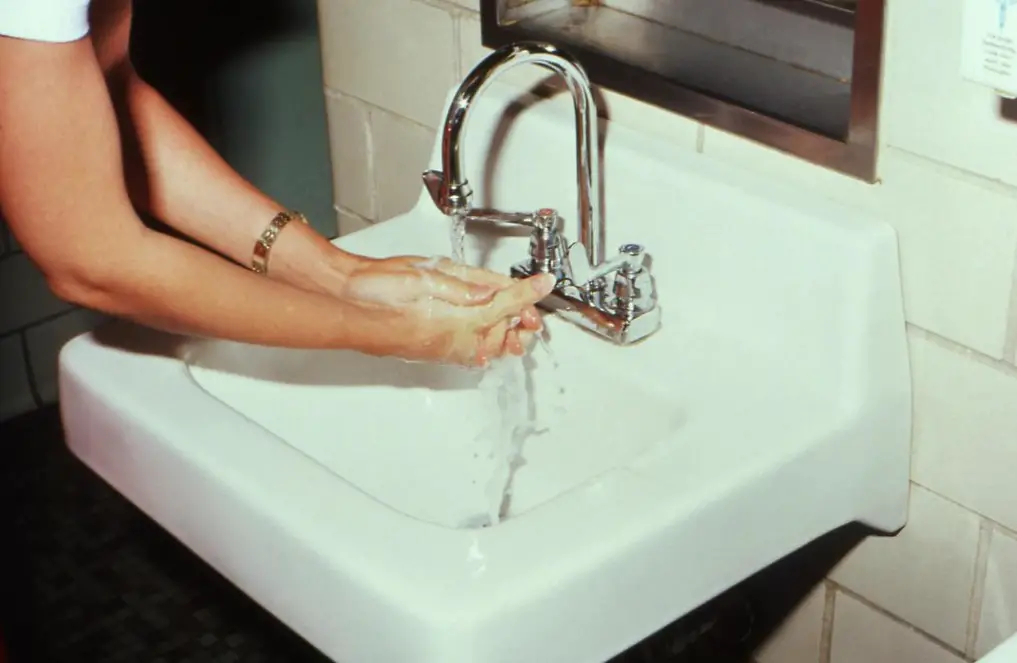
Few household frustrations compare to turning on the shower and being greeted by icy water instead of comforting warmth. Your home’s hot water system may not be something you think about daily—but when it fails, it disrupts showers, dishwashing, laundry, and general household comfort.
Like any appliance, a water heater works best when it’s well maintained. Routine care improves efficiency, extends lifespan, prevents costly breakdowns, and ensures reliable hot water when you need it. And with many homeowners now choosing tankless water heaters for their efficiency and compact design, understanding how to properly maintain both traditional and modern systems is more important than ever.
Why Hot Water System Maintenance Matters
-
Reliability: Prevents sudden cold showers or appliance disruptions.
-
Efficiency: Keeps systems running at peak performance, lowering utility bills.
-
Longevity: Extends lifespan—tank units can reach 12 years, tankless 20 years with care.
-
Cost savings: Early fixes prevent expensive emergency repairs.
Graph: Average Lifespan of Hot Water Systems
Understanding When Maintenance Means Repairs
Even the most well-maintained hot water system can develop problems over time. The key is recognizing the early warning signs before they turn into major issues. Common indicators that your system may need attention include fluctuating water temperatures, reduced water pressure, strange noises coming from the unit, or water that appears discolored. These problems can signal anything from minor sediment buildup to more serious mechanical failures.
For instance, if you own a tankless unit and start noticing these symptoms, it may be time to explore tankless water heater repairs to restore its efficiency and prevent a complete breakdown. Professionals can diagnose the exact cause, whether it’s a clogged filter, mineral buildup, or a faulty heating element, and provide the necessary repairs to get your system back to peak performance. Addressing these problems early not only saves you money but also helps ensure your household has a reliable supply of hot water when you need it most.
Recognizing When Maintenance Becomes Repairs
Even the best-maintained systems eventually show signs of trouble.
Warning signs your hot water system may need repair:
-
Inconsistent or fluctuating water temperatures.
-
Reduced water pressure.
-
Strange noises (rumbling, banging, hissing).
-
Rust-colored or cloudy water.
-
Water pooling near the unit.
Example: A tankless system making loud clicking noises could indicate mineral buildup on the heating element—a common issue in hard water areas. Addressing it early with tankless water heater repairs saves both money and prevents a total system shutdown.
Special Care for Tankless Systems
Tankless water heaters are known for their energy efficiency and ability to provide hot water on demand, but they require specific care to stay in top condition. One of the biggest threats to these units is mineral buildup from hard water, which can reduce efficiency and cause long-term damage. Regular descaling is essential; how often depends on your water quality, but for many homes, once a year is ideal.
Cleaning the inlet filter is another important step. This filter prevents debris from entering the system, and when it gets clogged, it can restrict water flow and strain the unit. Additionally, make sure the area around your tankless water heater is well-ventilated and free from dust or obstructions. Following the manufacturer’s maintenance guidelines will help you avoid unexpected problems and extend the lifespan of your unit.
Routine Maintenance for All Hot Water Systems
Whether you own a tank or tankless model, some care steps apply across the board.
Universal Maintenance Checklist:
-
Inspect for leaks, rust, or corrosion.
-
Test the pressure relief valve (safety measure against overheating).
-
Keep temperature at 120°F (49°C) for safety and efficiency.
-
Schedule an annual inspection with a professional.
| Task | Benefit | Frequency |
|---|---|---|
| Leak & corrosion check | Prevents major damage | Every 6 months |
| Pressure relief valve test | Ensures safety | Annually |
| Thermostat check | Saves energy, prevents scalding | Annually |
| Professional inspection | Spots hidden issues | Annually |
Special Care for Tankless Systems
Tankless heaters offer on-demand hot water and excellent efficiency, but they require specific care.
Key Tankless Maintenance Tips:
-
Descale annually – Prevents mineral buildup from hard water.
-
Clean inlet filter – Keeps debris from clogging water flow.
-
Check ventilation – Ensure area is dust-free and unobstructed.
-
Follow manufacturer guidelines – Each brand has unique care steps.
Personal Tip: In homes with very hard water, installing a water softener can dramatically extend a tankless heater’s life.
Extending the Life of Your Hot Water System
Beyond basic maintenance, small adjustments in usage habits can protect your system.
-
Install a water softener to prevent mineral buildup.
-
Insulate hot water pipes to retain heat and reduce strain.
-
Avoid simultaneous heavy use (running dishwasher + shower + laundry at once).
-
Fix minor issues quickly—tiny leaks or strange noises often indicate bigger problems brewing.
Energy Efficiency and Cost Savings
A well-maintained system doesn’t just last longer—it runs cheaper.
-
Sediment buildup in tanks = more energy required to heat water.
-
Scaling in tankless units = reduced efficiency, higher bills.
-
Lowering thermostat to 120°F saves 6–10% in energy use.
-
Insulating tanks and pipes reduces standby heat loss.
Graph: Common Sources of Hot Water Energy Waste
When to Consider a Replacement
No water heater lasts forever.
-
Tank systems: 8–12 years average lifespan.
-
Tankless systems: 15–20 years with proper maintenance.
Signs it’s time to replace:
-
Frequent repairs becoming costly.
-
Noticeably higher energy bills.
-
Hot water demand exceeds your current unit’s capacity.
-
Visible corrosion on tank.
Proactive replacement is smarter than waiting for a total breakdown—giving you time to choose the right model instead of rushing into an emergency purchase.
Energy Efficiency and Cost Savings
A well-maintained hot water system doesn’t just work better. It also saves you money. Over time, sediment buildup in traditional tanks or scale in tankless systems can force your water heater to work harder, using more energy and increasing your utility bills. Regular cleaning and maintenance help ensure your system runs at peak efficiency.
Lowering your water heater’s thermostat a few degrees can also reduce energy use without sacrificing comfort. For tank models, insulating the tank and pipes keeps water hotter for longer, meaning the system doesn’t have to reheat as often. Tankless systems already offer excellent efficiency, but they can lose some of that advantage if filters and components aren’t kept clean. Consistent upkeep ensures you get the most out of your investment.
Lifestyle vs. Professional Maintenance
Table: What You Can Do vs. What Requires a Professional
| DIY-Friendly Tasks | Professional-Only Tasks |
|---|---|
| Check for leaks and rust | Flushing tank (annual) |
| Adjust thermostat | Descaling tankless system |
| Insulate pipes/tank | Replacing heating element |
| Clean tankless inlet filter | Full system inspections |
Conclusion
Your home’s hot water system is the unsung hero of daily comfort—until it fails. With regular care, you can extend its life, lower costs, and avoid frustrating breakdowns.
-
Routine checks: Prevent small issues from snowballing.
-
Tankless-specific care: Descaling and filter cleaning.
-
Efficiency improvements: Insulation, thermostat adjustments, and water softeners.
-
Know when to replace: Be proactive, not reactive.
With the right attention, your hot water system will remain dependable for years, delivering comfort every time you turn on the tap.
FAQs: Maintaining Your Hot Water System
Q1: How often should I flush my water heater?
-
Tank models: once a year (more in hard water areas).
-
Tankless models: annual descaling recommended.
Q2: What temperature should I set my water heater to?
-
Around 120°F (49°C) for comfort, safety, and efficiency.
Q3: How can I tell if my water heater is failing?
-
Signs include rust-colored water, reduced pressure, loud noises, or age over 10 years (tank) / 15 years (tankless).
Q4: Is tankless maintenance harder than tank?
-
Slightly, but with annual descaling and filter cleaning, it’s manageable.
Q5: Can a water softener really help my hot water system?
-
Yes, it prevents mineral buildup, extending the lifespan of both tank and tankless units.
-
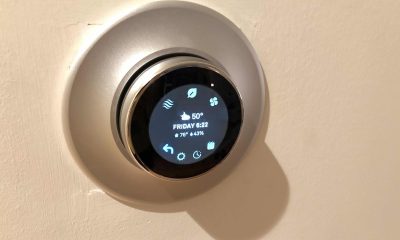
 Gadgets3 years ago
Gadgets3 years agoDoes Nest Thermostats Contain Cameras Or Microphones? Is It Safe For you?
-

 Guides2 years ago
Guides2 years ago10 Best Apps To Control All Your Smart Home Devices.
-

 Gadgets3 years ago
Gadgets3 years agoWhat Is The Purpose Of Red Button On The SimpliSafe Keypad?
-

 Gadgets3 years ago
Gadgets3 years agoComplete Guide About Equalizer settings for Samsung-Soundbar
-

 Accessories2 years ago
Accessories2 years agoBlink Camera’s Temperature Sensor Settings, and More
-

 Accessories2 years ago
Accessories2 years agoCan Siri Control Samsung Televisions And Are Samsung TVs Homekit Compliant?
-

 Solutions3 years ago
Solutions3 years agoWhy is My Samsung TV Picture So Dark? Exploring the Possible Causes
-

 Gadgets3 years ago
Gadgets3 years agoFitbit Symbols Meaning: What Do The Fitbit Icons Mean?










